Thoughts on Cambodia
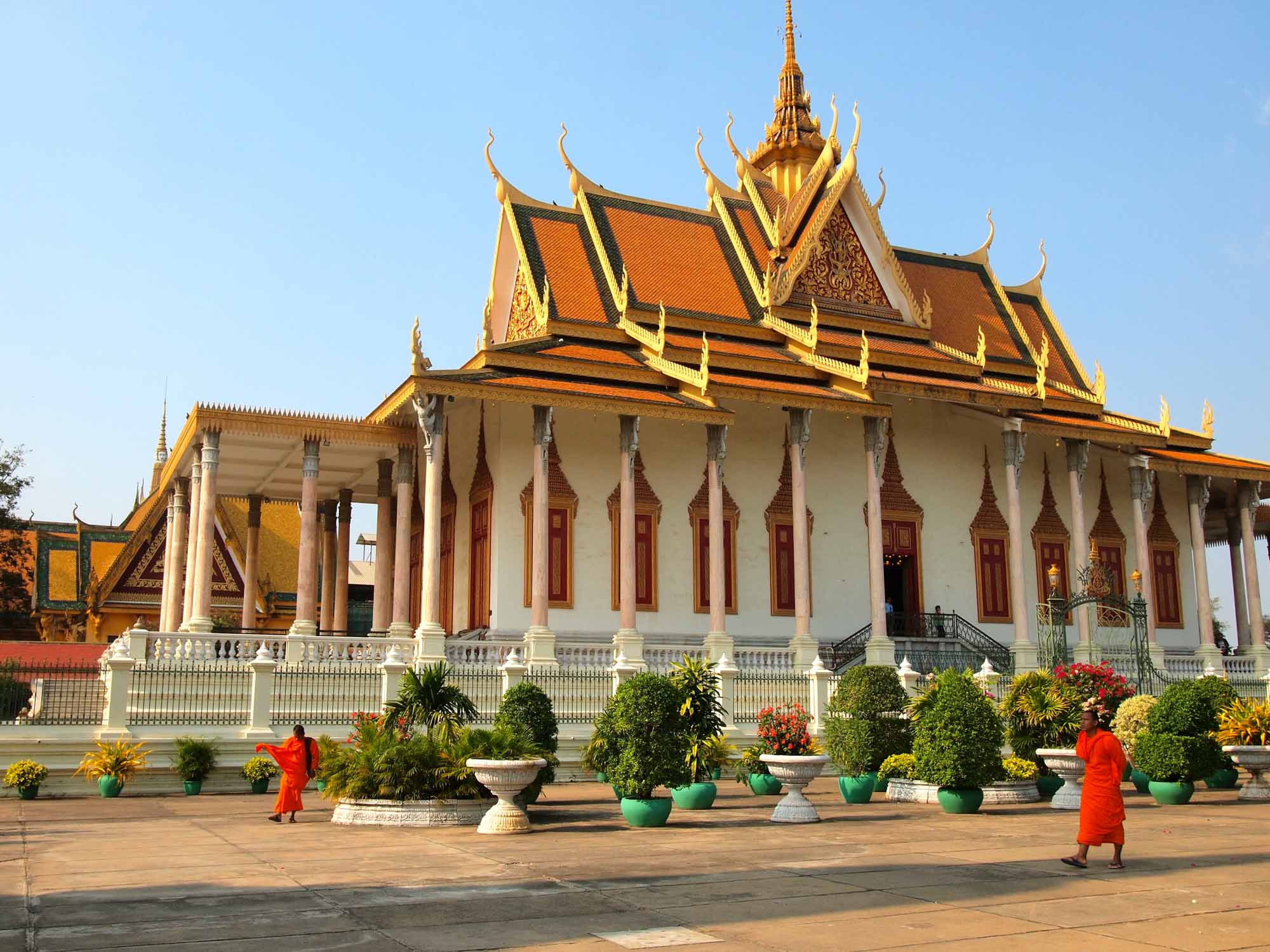
When I came home from Southeast Asia, everyone wanted to know what I thought about it. And it was mostly easy to tell them: Hong Kong was crowded and very tall; Vietnam was beautiful in every sense of the word: Thailand was tropical and relaxing.
But then I would get to Cambodia, and describing my experience there wasn't so easy.
It's not that I disliked Cambodia; far from it. I loved exploring the Angkor temples, had fun riding the bamboo train, and was even amused by watching people eating spiders. But I was also deeply saddened by visiting the Killing Fields, and disturbed to see how much the country struggles with corruption and poverty.
Cambodia is poorer, less developed, and in general in more trouble than almost any other nation in Southeast Asia. And, because of this, I was really conflicted about my time there.
“It will break your heart”
I've been reading up a bit on Cambodia and its history recently, in hopes of being able to better wrap my head around it. Throughout my reading, I've come across a quote from a former U.S. Ambassador to Cambodia more than once. The quote goes:
Be careful because Cambodia is the most dangerous country you will ever visit. You will fall in love with it and eventually it will break your heart.
And he was absolutely right.
Seeing stark economic disparity broke my heart. The Royal Palace in Phnom Penh, for example, is immaculately well manicured, with buildings covered in gold and filled with valuables. But then you walk out into the city, where there is trash all over the streets and people living in extreme poverty.
According to the United Nations' Human Development Index, Cambodia only ranks #146 out of 195, with 46% of people living on less than $3 per day.
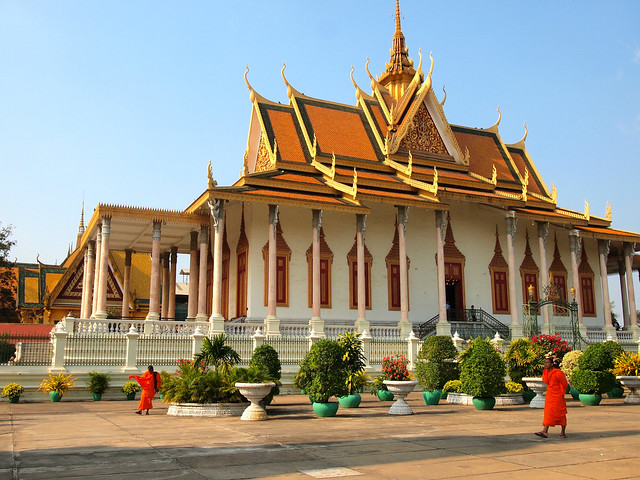
Driving through garbage-riddled villages on unpaved, pothole-filled roads broke my heart. Neighboring countries like Vietnam and Thailand are also increasing in popularity among tourists, but development there seems to be keeping apace, with decent roads and modern amenities found all over.
Cambodia, meanwhile, is lagging far behind, with a struggling economy, issues with hunger, and a lack of education.
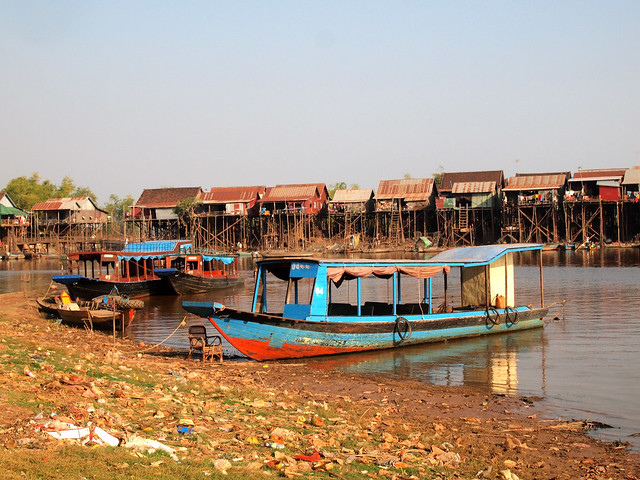
Learning about the corruption in Cambodia broke my heart. I paid $20 to enter the country, and another $40 to get a 3-day pass to the Angkor temples. That amount right there is more than most Cambodians make in a month — no small sum.
So where does that money go? Well, the border fee no doubt goes right into someone's pocket (and it's not uncommon for border guards to intimidate even MORE money out of tourists). According to the Corruption Perceptions Index from 2017, Cambodia ranks in the top 20 most corrupt nations in the world, and it's painfully evident if you look for it.
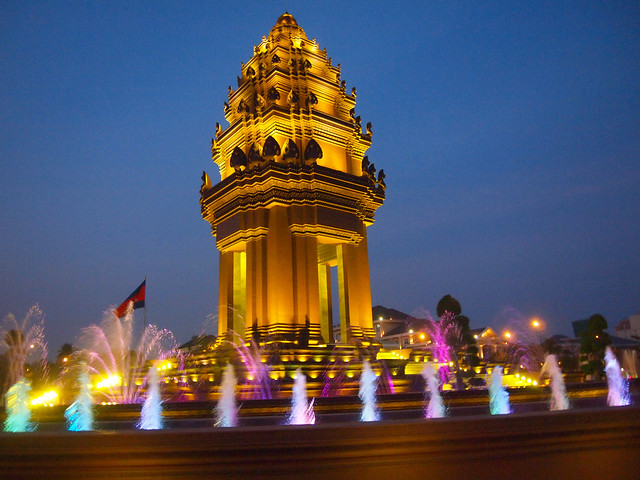
And there are plenty more heartbreaking examples: kids begging on the streets (many of whom do this “professionally” instead of going to school); touts pestering tourists inside religious sites; locals — including tour guides — throwing rubbish on the ground.
Add to this rampant exploitation of the poor and the weak (Cambodia has one of the worst reputations in the world when it comes to child sex trafficking) and it's beyond heartbreaking.
Cambodia has a lot to offer, but if you open up your eyes to the reality playing out in this country, I'll bet it would break your heart, too.
A Cambodia history lesson
To understand part of Cambodia's current plight, you really must visit sites like the Killing Fields and talk to the people who survived the Khmer Rouge era. In the 1970s, the brutal Khmer Rouge regime ruled Cambodia with an iron fist, killing millions of educated people and sending the rest to collective farms and labor camps — where millions more died of starvation and disease.
The Khmer Rouge years — still remembered vividly by anyone in Cambodia over the age of 40 — took a severe toll on Cambodia and have undoubtedly affected every person living in the country today.
After the genocide in the '70s — which strapped many Cambodians with severe cases of post-truamatic stress disorder (PTSD) that studies have suggested is now being passed on to their children — the country was divided.
The Soviet-backed Vietnamese were running a puppet government from Phnom Penh, while the Chinese still supported the Khmer Rouge armies hiding out in the jungle. The U.S. was largely trying to stay out of the mess after the whole debacle in Vietnam (which also included bombing parts of southern Cambodia to bits, too). Meanwhile, the average Cambodian continued to suffer.
After the fall of the Soviet Union (and once the genocide could no longer be ignored), the United Nations actually stepped in and tried to run Cambodia from 1992-93 in attempts to make up for the decades the West spent ignoring what was going on there.
This was the first (and only) time the UN ever did anything like this. Afterwards, the country was supposed to become a prospering democracy.
But that didn't happen.
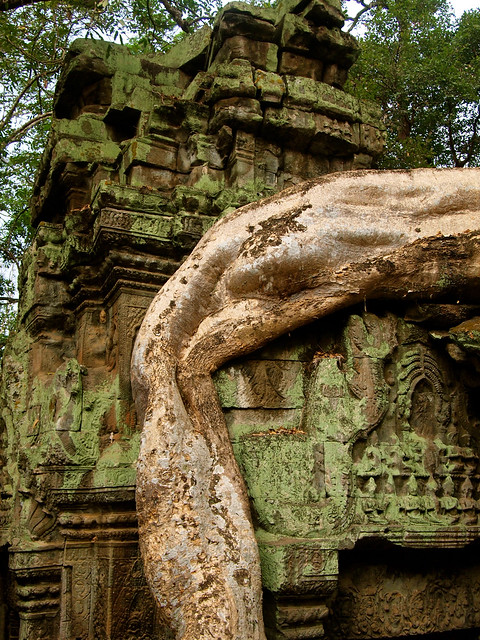
The UN didn't have the money, the troops, or the influence to really affect any real change in Cambodia. Yes, the organization pumped $3 billion into the country and WAS successful in setting up elections in which 90% of eligible voters participated.
But, after the election, things went right back to the way they had always been, with different political leaders vying for control as if the people had never spoken at all.
One of the at-odds leaders was Hun Sen, the communist leader who had been appointed to run the country when Vietnam liberated it from the Khmer Rouge. After the UN elections, Hun Sen helped “run” Cambodia in a semi-coalition government with the royalist party until 1997, when his army led a small coup and took control of the country back.
Hun Sen has ruled the pseudo-democracy ever since, but with frequent reports of rigged elections.
Some argue that the cycle of corruption and human rights failures is just intrinsic to Cambodia as a nation. Dating back to the ancient Khmer Empire (800s-1400s AD), officials and kings were lining their pockets and getting rich while the poor remained poor and slave labor was the way to get things done.
One author suggests that Cambodian culture on the whole lacks a drive to succeed, and that this, coupled with the Theravada Buddhism belief that people should be pleased with the lives they have and not aspire for more, has molded Cambodians into a passive people; victims of their own shortcomings.
I'm not so sure I agree, however. Subject a people to horror and repression and poverty long enough, and of course they will accept it as the status quo. What would happen, though, I wonder, if Cambodians were more empowered, both from within their country and from without?
Recent protests by garment factory workers demanding better pay and working conditions suggest that not all Cambodians are willing to accept the lot in life they've been (perhaps unfairly) dealt. And many Cambodians I spoke with gladly shared their opinions with me about the current corrupt government and how they (along with many others) would like to get rid of it. Post-election protests in 2013 support this opinion and prove that not all Cambodians are happy to passively sit by and observe any longer.
Unfortunately, however, as long as the Prime Minister wields absolute power, it's unlikely that anything will change.
So what does this mean for tourism in Cambodia?
As I mentioned above, Southeast Asia is emerging as a popular tourist destination. Nearby countries like Thailand and Vietnam are enjoying the economic boost that tourism provides, and Cambodia, being placed in between the two, is also seeing an influx of visitors.
In fact, tourism is Cambodia's fastest-growing industry.
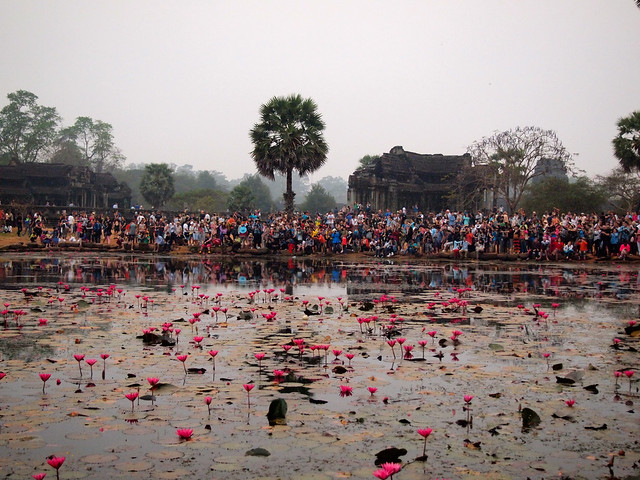
But in Cambodia, development is outpacing infrastructure. The country is so desperate to catch up that people are ignoring how completely ill equipped Cambodia is to deal with such an increase in tourists.
The people have not been educated enough about tourism development or sustainability. Things like waste management, food safety, and historic preservation are largely ignored, even in areas that are seeing lots of tourists.
For example, more and more people (millions of them) visit the Angkor temples each year, but the infrastructure in Siem Reap — not to mention the preservation of the temples themselves — remains quite basic.
I enjoyed my time in Siem Reap, but it's actually sad to imagine what the city and temples will look like 10 or 20 years from now due to over-visitation and unsustainable development.
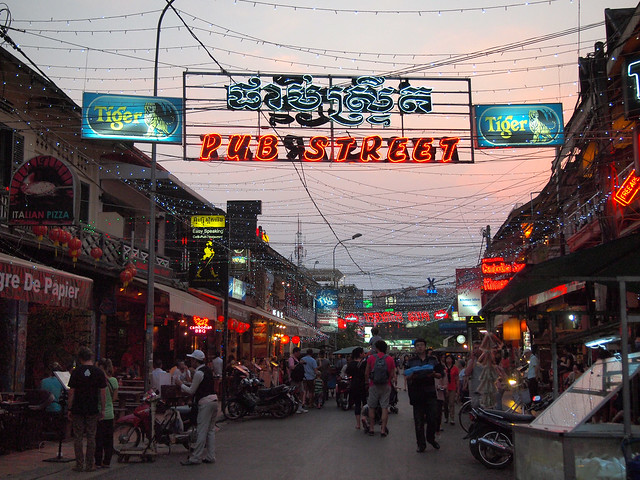
And then there's the crime. In places like Phnom Penh, you are advised to always hold tight to your bag, and NEVER have things like iPhones or iPads out in your hands when you are walking around or riding in a tuk-tuk. Even the drivers will warn you about this. Tourists, unfortunately, are becoming easy targets here.
I will not tell you to avoid Cambodia because of any of this, though. There's a reason so many people fall in love with it, after all. But this should all be food for thought.
What can we do?
Ask Cambodians how their nation can be improved, and they will say that Western powers need to step in, get rid of Hun Sen's corrupt government, and help them develop the country and economy.
Easier said than done, of course, especially if we look at recent history. Historically speaking, Cambodia has been quite averse to help that doesn’t also line the pockets of officials. The UN couldn’t affect any lasting change, and the thousands of NGOs operating in the country have not yet helped the people get rid of a government they no longer (and really never did) support.
Nations from around the world have been pumping billions of aid dollars into Cambodia for decades, and yet people outside of the cities live and work exactly as they would have done 300 years ago.
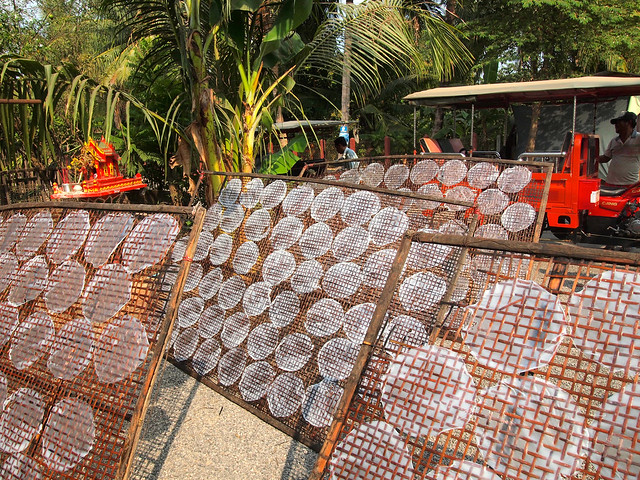
Some may say that volunteering (or, God forbid, starting up yet another non-profit) is the way to truly help in Cambodia. But I would be very reluctant to suggest this route.
Many volunteering schemes in Cambodia are scams — many orphanages, for example, exist purely as tourist attractions, and parents actually SEND their children there to make money. Pumping money into Cambodia, in some cases, could actually do more harm than good.
In my opinion, the only way to help Cambodia as a tourist is to be conscious of your decisions while there, and to be aware of how your presence is affecting the country.
Be a “good” tourist” in Cambodia
Small gestures — like going to a local restaurant that helps street kids or shopping somewhere that employs people with disabilities — can go a long way. Here are some things to keep in mind:
BEGGARS
Whatever you do, don't give money to child beggars you see on the street. These kids are purposefully kept out of school to try to sell you postcards and bracelets. They may be cute. They may be charming. But I promise that none of that money is actually going to help them go to school. They are employed (or enslaved) by someone, and they will see none of your money at the end of the day.
It's often harder to ignore beggars who are missing limbs — many of them were innocent victims of land mines that the U.S. left behind during its war with Vietnam, or of the acts of the Khmer Rouge. However, many of them ARE offered help and even artificial limbs by local NGOs. But many of them realize that they can make more money by begging on the street than working a regular job.
Whether you give them anything is of course up to you, but just keep in mind that people with any sort of disability — be it one they were born with, or one they have acquired — should be treated the same as everyone else.
Instead of giving people money, offer to buy them a meal. It's the easiest way to sort out who is truly in need from those just trying to play to your sympathies.
And, if you really want to support disadvantaged kids, do some research before you go to Cambodia about local restaurants and programs that train street kids as cooks and wait staff and teach them English and business skills. Some places I personally visited included Friends in Phnom Penh, Jaan Bai in Battambang, and Genevieve's in Siem Reap.
LITTERING
Set a good example. DO NOT throw rubbish on the ground, even if you see the locals doing it.
Driving through the countryside in Cambodia especially is depressing. The poverty is difficult to see, as is all the trash and pollution. Much of it can be blamed on a simple lack of education — people who once wrapped up their food in banana leaves and then discarded them in the river haven't been properly taught that plastic doesn't work the same way.
Set a good example by at least disposing of your garbage properly.
HAGGLING
Pick your battles when it comes to haggling. I got quite angry one day in Siem Reap when I saw someone arguing over 50 cents with a tuk-tuk driver. Unless you legitimately feel that you are being ripped off, don't do this. These guys are not begging on the street corner or trying to exploit a disability or misfortune — they are trying to make a living the best way they can.
Does it really make a huge difference to YOU whether you pay $1.00 or $1.50 for a ride into the city? You can probably part with the money.
Too many times travelers in this part of the world lose sight of reality and become obsessed with spending as little money as possible. Sure, saving money feels good. Sure, haggling is expected in Asia. And sure, the locals will always quote a foreign tourist a higher rate. But that doesn't mean that it's worth getting stingy over 50 cents.
Most of all, just go to Cambodia with open eyes. Talk to the people. Try to understand what has happened there.
And then come home and tell everybody you know. Because, sad as it is, I really do believe that spreading the word about the plight of Cambodia is the only way to truly help it.
Have you been to Cambodia? What was your experience like?

Amanda Williams is the award-winning blogger behind A Dangerous Business Travel Blog. She has traveled to more than 60 countries on 6 continents from her home base in Ohio, specializing in experiential and thoughtful travel through the US, Europe, and rest of the world. Amanda only shares tips based on her personal experiences and places she's actually traveled!

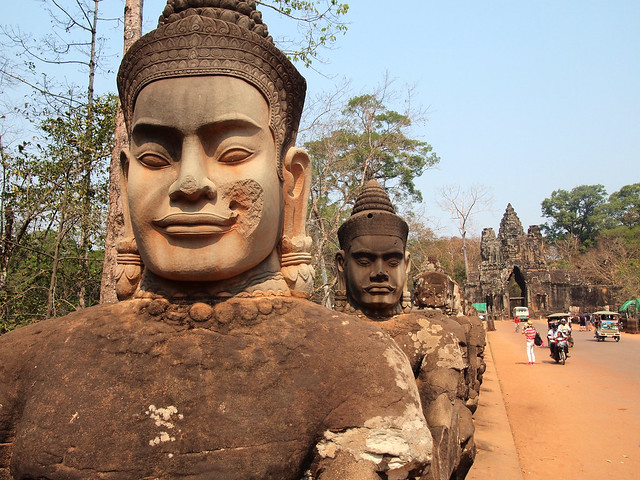

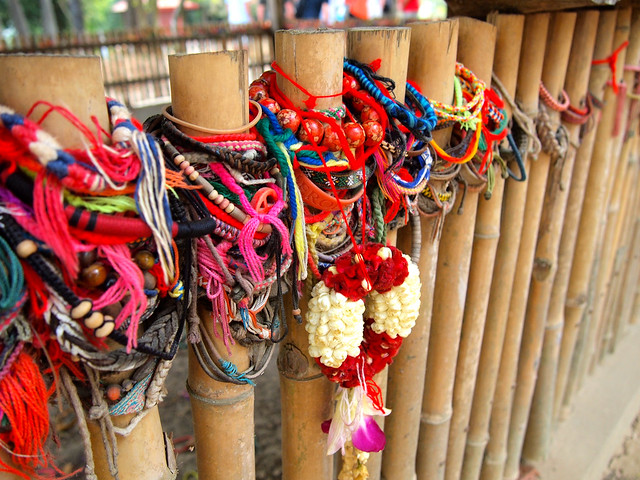
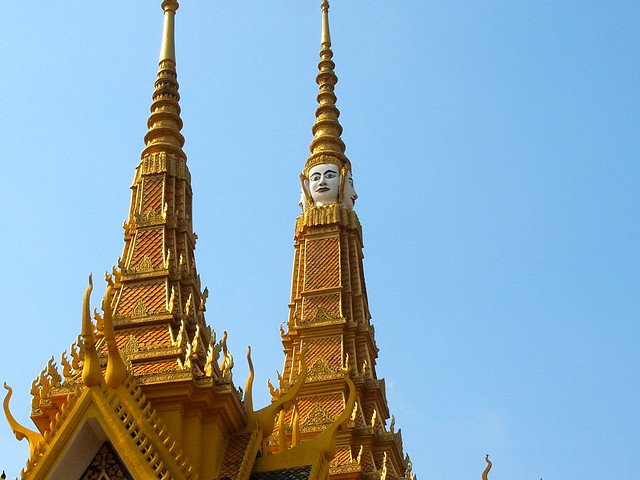
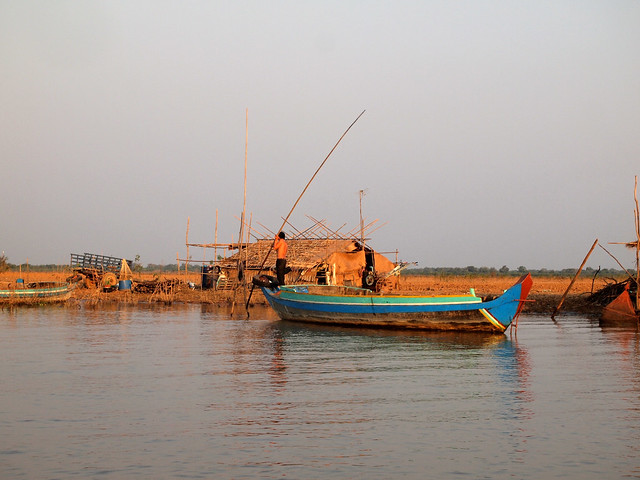

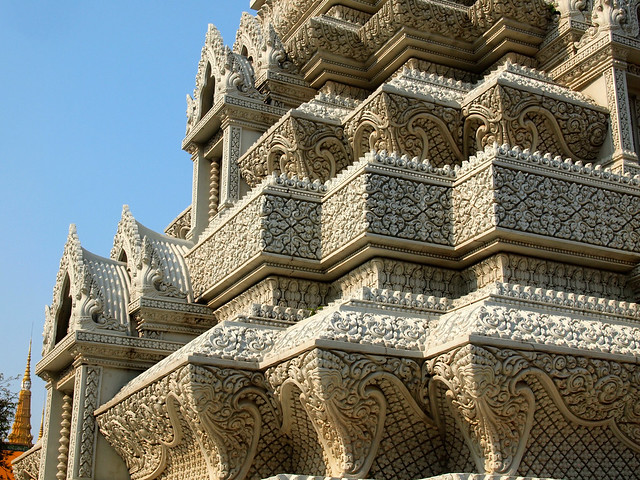
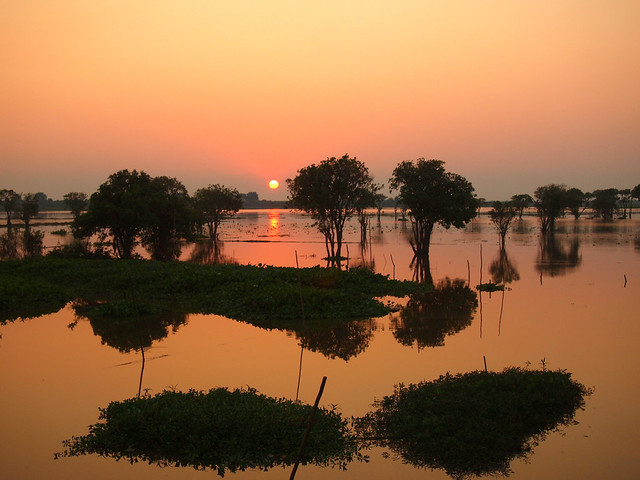









Amazing post. And a little eye-opening. I’m planning on visiting Cambodia for a month next year and have read numerous posts about the country and travelling through it, but this has been the best so far! I hope I do go in with an open mind, but I’m sure as you say, it will break my heart too! I want to see the real Cambodia, and I truly hope that doesn’t mean I’ll have a ‘bad’ experience as many have said they have done. But I know many have fallen in love with the country and the people as well!
I’ve definitely heard people talk of good AND bad experiences in Cambodia. I think if you go in with an open mind, and with a little background knowledge on the country, you will indeed see the “real” Cambodia.
Thanks so much for the compliments on this post!
I was hanging on every word in this post, Amanda. Cambodia is one of my favorite countries in the world and I’ve spent about five weeks there in total over two different trips. Both times I left on a high… it just makes me heart happy to be there.
However, I’ve been hearing from several friends and acquaintances lately that they didn’t have such a positive experience and I’ve been so curious as to why. I think you verbalized it so well here. It sounds like the experience I had in Vietnam, you had in Cambodia, and vice versa.
And wow, what a powerful quote from the former ambassador.
Yes, I’ve heard the same from a lot of people who have been there recently – I almost didn’t go to Cambodia at all because of all the negative things I was hearing. I’m really glad I DID go – but at times it wasn’t an easy place for me to be.
Thanks so much for reading, Alex!
We plan to visit later this year, so thanks for all of this info. Long ago I lived in Tijuana Mexico and it was a similar thing there as well. Sad, but help where you can and in a smart way.
Helping in a smart way is the most important part, I think!
What an eye-opening read, Amanda. I don’t know much about Cambodia but this is certainly good food for thought. It’s sad to think that 10 or 20 years from now the country might be in the same exact situation it’s in today because of a lack in education and semi-dishonest government officials.
It’s REALLY sad. In fact, if things continue as they are, I wouldn’t be surprised if things got much worse in the next decade or so.
A very interesting post, well done Amanda!
I had always asked myself about the littering in the streets that I saw in documentaries, and you give a perfect explanation: we are taught, in schools and through campaigns, about recycling and the protection of the environment, it’s not a thought that comes naturally.
I agree about not buying anything from children, and about not arguing over small amounts of money. The only thing I don’t agree with is foreign countries actively stepping in in these cases. I think it’s always better if a country slowly makes progress towards the better on its own, without the forceful intervention of other countries. What we can do is raise consciousness among Cambodians that a better life is possible. I’m from Italy, and even though there is much corruption in my country, I would hate it the United States or Germany stepped in and said what’s best for the country, getting rid of this or that without people changing their attitudes towards power or choosing better leaders.
I totally understand that stance on not wanting other countries to step in. The problem in Cambodia is that other countries have ALWAYS stepped in. China backed the Khmer Rouge; Vietnam chased out the Khmer Rouge; the UN tried to reorganize the country. After the UN experiment, Cambodia was being funded by mostly Western countries, to the tune of billions of dollars. Now, Cambodians feel that intervention from an outside power is the only way to change things once again.
I’m not sure where I actually stand on that topic. On the one hand, I agree with you that Cambodians should be empowered enough to want to change their country on our own. But, with such a powerfully corrupt government, I think that would actually be nearly impossible for them to do unaided. It’s such a tricky (and touchy) subject!
This is a timely post for me, as I just arrived in Siem Reap this afternoon and already agree. It’s pretty intense here, like I have to be on my toes at all times. I didn’t experience that in Thailand at all.
Corruption, poverty, child workers, etc. plague most Southeast Asian countries. But I definitely saw it the worst in Cambodia. I really hope you still manage to enjoy your time there, though!
This is such a well-rounded and accurate post. I really enjoyed reading it. I had one of my best friends living in Cambodia while I was visiting and it was so different to see PP from a local´s perspective. (After almost a year she decided she didn´t want to live there anymore and I can see why. It´s so corrupt!). Still, I loved it, but I wonder what I would have thought about it if I visited on my own. I think I would have felt a lot more unsafe and weary of people. Also, there are also so many heartbreaking sights in the country as a whole, it is such a trip of ups and downs!
Ups and downs is definitely the way to describe Cambodia! I was actually on a tour in Cambodia, and having a local guide (from Battambang, though he now lives in Siem Reap) really helped me experience it a little “deeper,” I think.
I love your thoughts on cambodia and that you went a little deeper then a lot of people do when touring a place. I agree, I think volunteering is often a hoax and people get warm fuzzies from doing it but it rarely does as much as we like to think. I do think the country sounds intruiging though and would like to go
Thanks, Rebekah. I totally agree with you on volunteering. I volunteered at an elephant sanctuary in Thailand on this same trip. And, while I had an amazing time and learned a lot about the plight of the Asian elephant, I know that the money I paid to volunteer was actually the part that helped the park the most, not necessarily the time I spent there. Still glad I did it, though! But, knowing this, I would definitely be wary about volunteering for any organization where my money might go into someone’s pocket.
Glad that you still want to visit Cambodia, though! I was worried that this post might turn some people off.
This is a really eye-opening and insightful post Amanda, thank you for sharing. I am heading to Cambodia as part of my travels around Asia this summer and similar to others, have heard very different tales about the country.
As I set off on my long term travels in 2 months from now, I have been considering more and more how I could work or help in certain countries and whether I would be doing more harm than good.
I really appreciate the post and I will definitely investigate some of the organisations that you mentioned above 🙂
I’m really glad you found the post useful, Lisa.
It’s tough in this part of the world, because you often want to do something to help when you see the poverty and exploitation. But I would definitely counsel you to be careful, especially if you’re considering a volunteer project that involves people. “Voluntourism” is becoming so popular in many parts of the world, but it’s not actually always the best way to spend your time (or money).
Thanks for this post. All too often we only hear about the amazing sights and the great times people have. Sometimes people are afraid to criticise the countries that they visit (myself included) but it often needs to be said.
I don’t view this post as a criticism – I just view it as essential education if you’re going to Cambodia! But yes, I agree that writers too often only focuses on the good parts and ignore all the rest.
Wonderful post, Amanda, and one I feel I could have written myself as it so closely mirrors my own feelings about Cambodia. I am deeply deeply ambivalent about the place—I had some wonderful times there, but things like the corruption and greed really took their toll on me as well. I have never seen so many Lexus SUVs in an Asian country, never mind one where the average salary is $1.25. It was just astounding. Cambodia is definitely one of those places that I’m glad I visited, but it’s also one of the few places we’ve been where I’m not really eager to return.
It’s like you took the words right out of my mouth, Steph. I both loved and hated Cambodia. And, while I’m glad I went, I don’t know that I would want to go back – especially if things just get worse.
Hi Amanda,
This is one of the reasons I love your blog the most. Most bloggers who visit Cambodia would just write about their experiences through rose-tinted glasses, about how beautiful and dreamy the Angkor Temples are and leave it at that. But you take it further and educate your readers about the other side as well, the not so ideallic bits. Your post on the Concentration camps, or being an American in Vietnam, and now this one, are some of my favourites. Thank you for this 🙂
Thank YOU so much for this comment. These posts are always the hardest to write – probably because they are always quite personal – and I’m always glad to hear when people really connect with them. I also really appreciate that you take note of the fact that not all of my posts are rosy. A lot of them ARE, to be fair, but I try to write about the real realities of the world every once in a while, too.
This is a really powerful post, Amanda. I’ve never been to Cambodia, but have heard a lot of conflicting things about it recently, similar to the sentiments that you echo here. Adventurous Kate wrote a great post a little while back about how Cambodia has changed (for the worse) in the past few years, which was also an interesting read. Hopefully the Cambodian people will be able to affect change themselves, but that’s probably easier said than done and, like you say, the international community, even visitors to the country, can do a lot to help, like being aware of where they are and the issues that drive things like corruption or dependence on begging.
Thanks so much, Tom. I remember Kate’s post that you mentioned – I read it not long before my own trip to Cambodia. And, while I try to not let things other people say color a country for me, I can totally understand how she came to those conclusions after having seen the country and situation for myself.
I think that travelers like us are really the best defense Cambodia has at this point – we HAVE to educate ourselves and spread the word.
Wow what a powerful post Amanda. Excellent. I spent three weeks in Cambodia – two weeks on an Intrepid tour and a week on my own in Kep and Phnom Penh. I knew this was going to be a country that would break my heart when the man beside me on the plane from Singapore to Cambodia told me how his entire family (with the exception of an uncle and his family who he was on his way to see – he now lives in the U.S) were murdered by the Khmer Rouge.(his father was the principal of the school that is now Tuol Sleng) I understand so many of the points you bring up. Not having been to Vietnam (YET) and with my last trip to Thailand being in 1990 (WAY overdue for a return trip) I can’t really compare it to any other country in SE Asia. Of course the history is absolutely heartbreaking and it will affect the country for generations. While visiting a fishing village just outside of Phnom Penh (on the freebie Urban Adventure I got through you!) I came face to face with extreme poverty and literally walked on garbage as there was no avoiding it .I couldn’t help but think why can’t they even try cleaning this up but then I chastised myself for thinking like that – they are too busy trying to make a living to worry about their surroundings. Yet wouldn’t it make life a bit easier not to have to worry about your child cutting themselves on broken glass? I tipped generously whether it was tourist guides or the masseuse. I have so much compared to the citizens of Cambodia – why can’t I share? I don’t “get” people who haggle for 50 cents. I tried to support the NGO’s and restaurants that support locals but I know it is like a drop in the bucket. IF they do get anything. As you say a very corrupt country and the future does not look too promising. Yet I hope to return one day and dare I hope it will be be a bit better?
I hope you do return someday, Laurie. And I hope that the country is better off then than it is now!
I know very little about Cambodia but I think you did a wonderful job here in giving a brief yet informative background on the country and more importantly, your thoughts as a tourist visiting there.
A lot of what you wrote was hard to read and I am sure it is even more so experiencing first hand. I haven’t been to Southeast Asia but have traveled and lived in numerous developing nations in Latin America. The poverty in Nicaragua is so rampant (it’s one of the poorest nations in the Western Hemisphere) but will always remember someone telling me that Nicaragua compared to a place like Haiti is paradise. It’s one of those things you just can’t imagine. The quote you provided though from the ambassador is perfect in describing travel in so many places like Cambodia.
When I read posts like this they do break my heart since we will spend $10 without a second thought and for so many people that’s more than a family of four will have to live on for a week.
I can completely understand how it was hard to put to paper your thoughts and emotions.
It definitely made me think. But that’s not a bad thing – too often I think tourists visit the main sites and snap their photos and then declare their complete love or hatred for a place. But it’s much more complex than that, especially when visiting developing countries. I did my best to just observe and listen and not make any judgements in Cambodia, even though parts of it were very hard to see.
Thanks so much for the great comment.